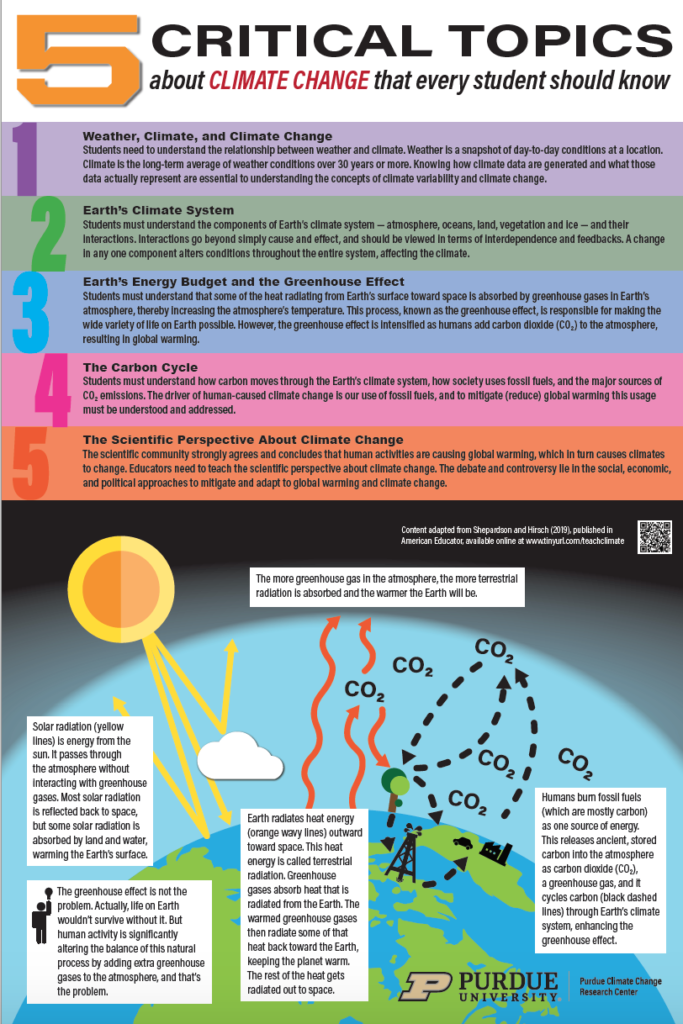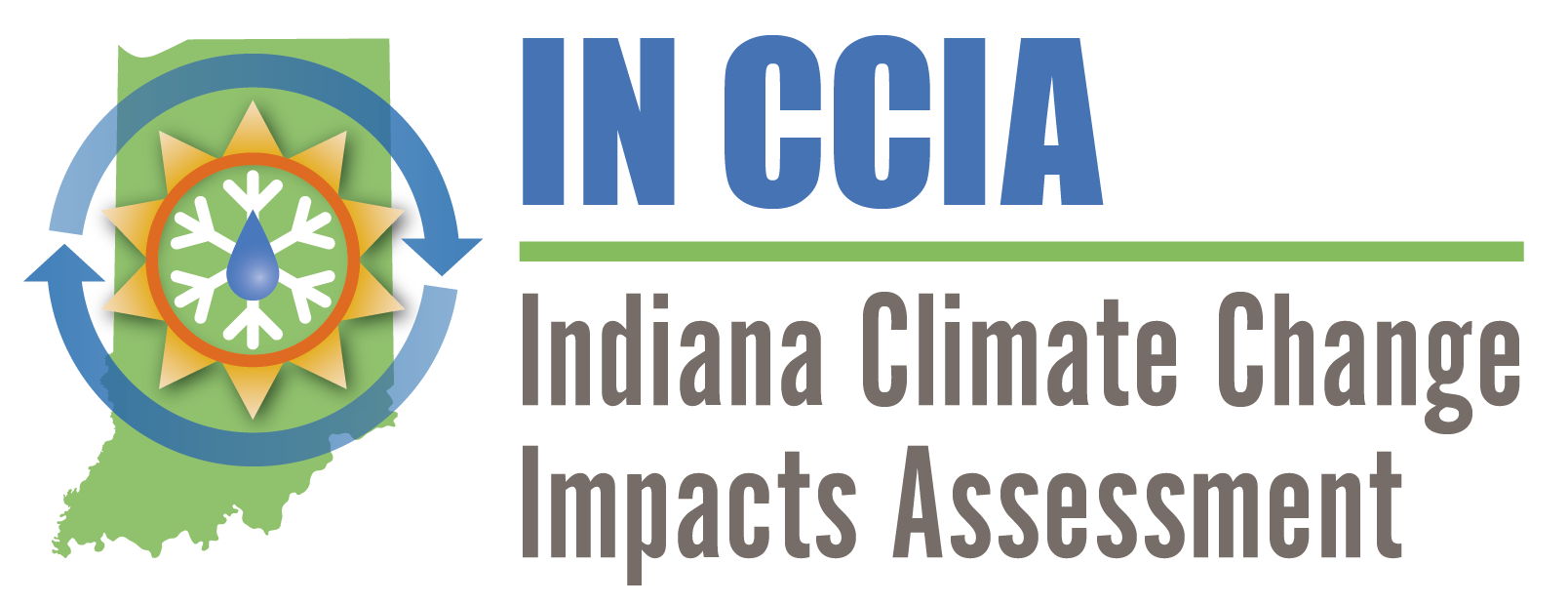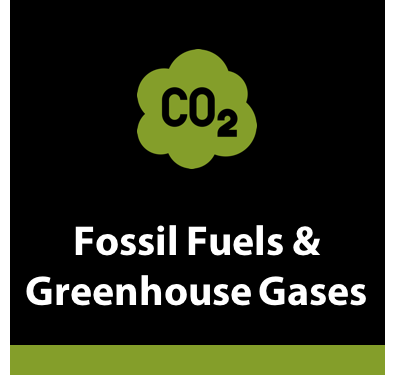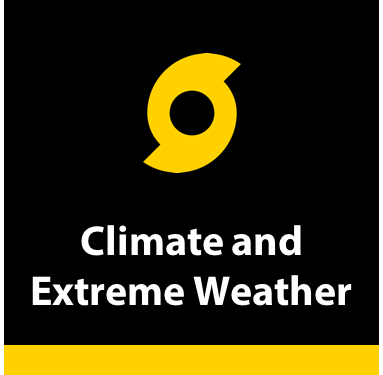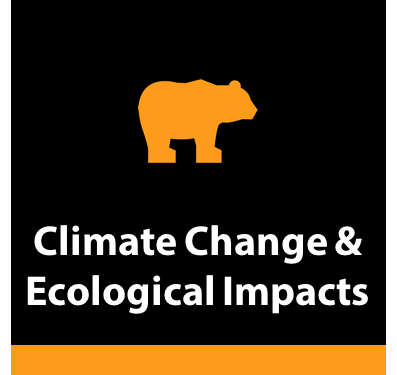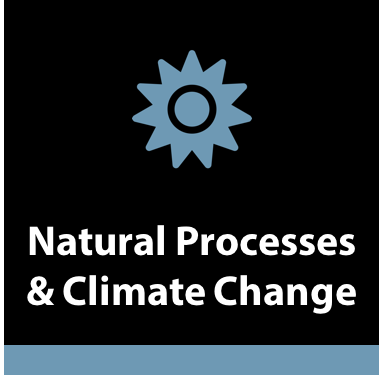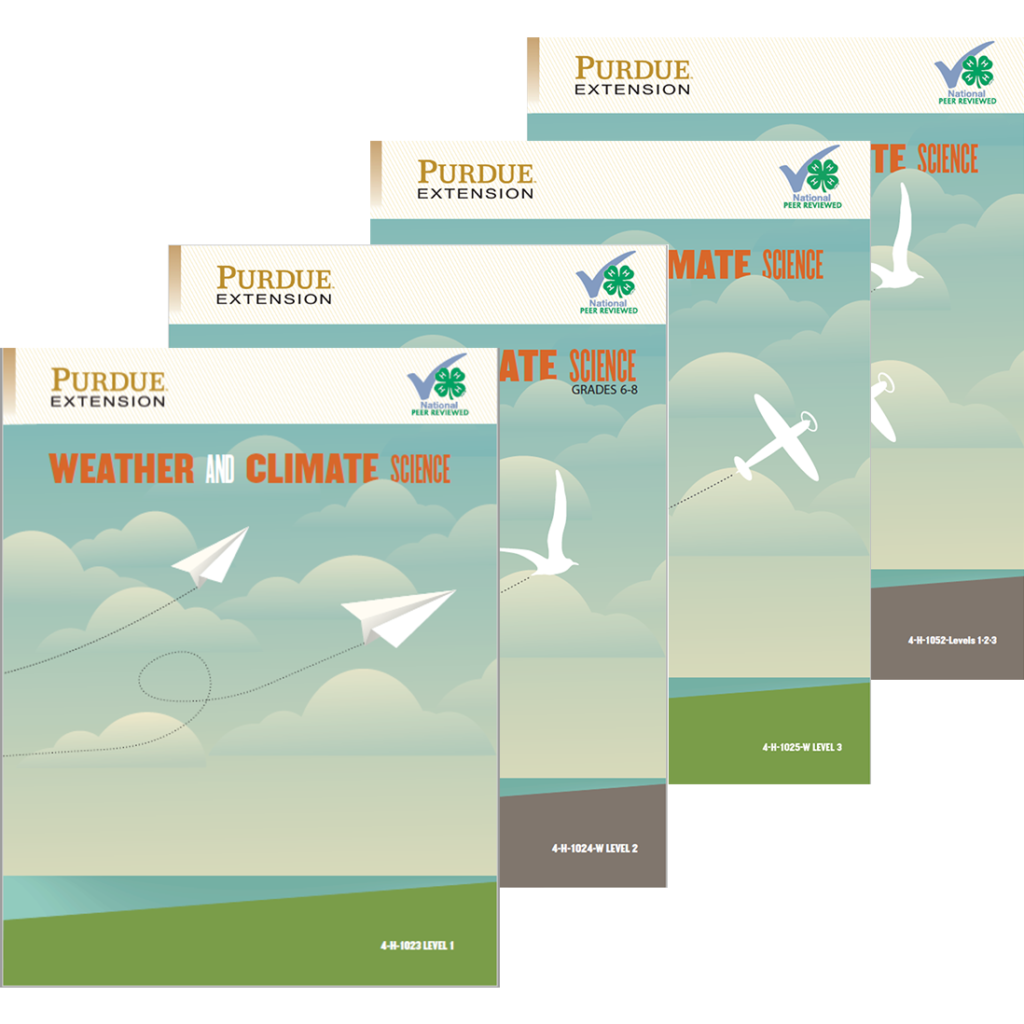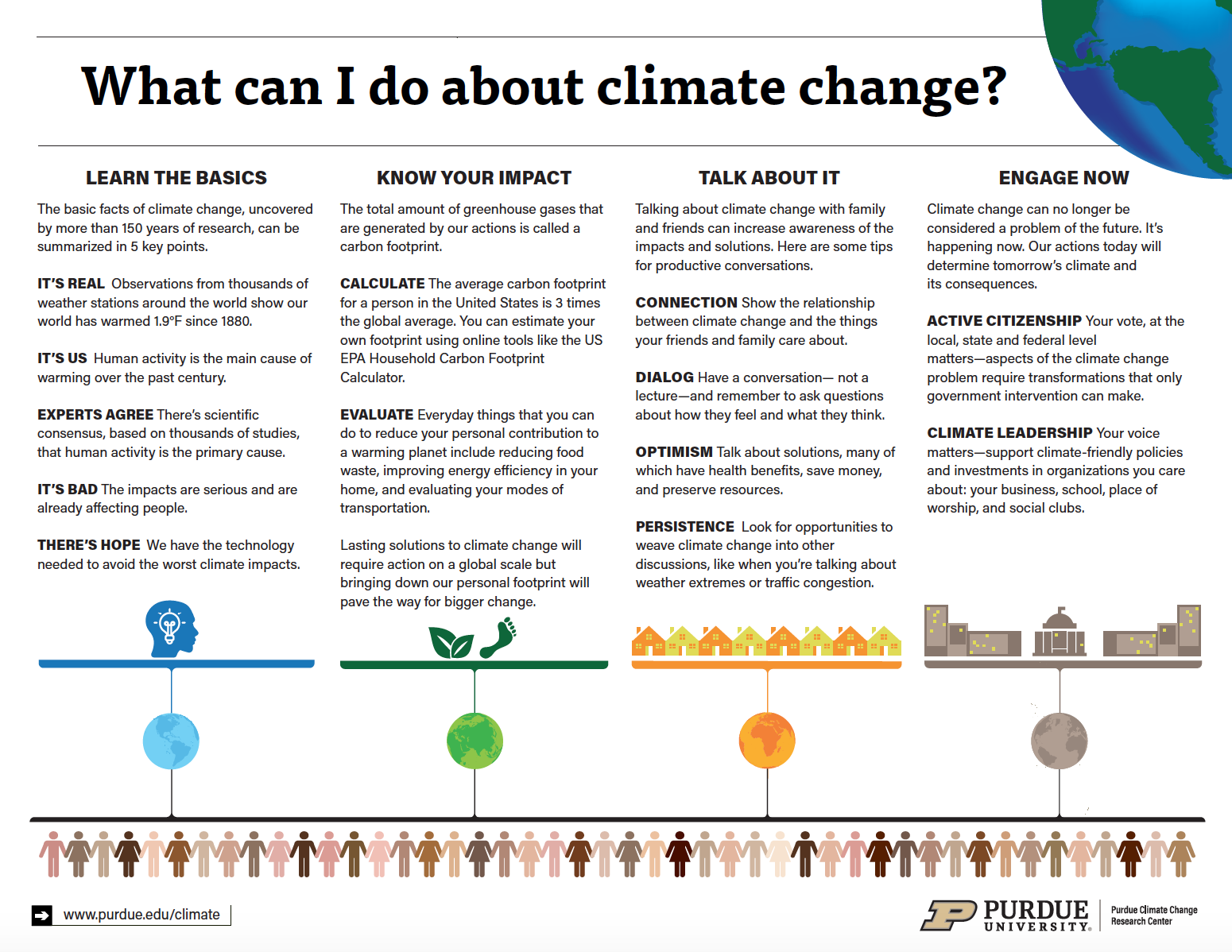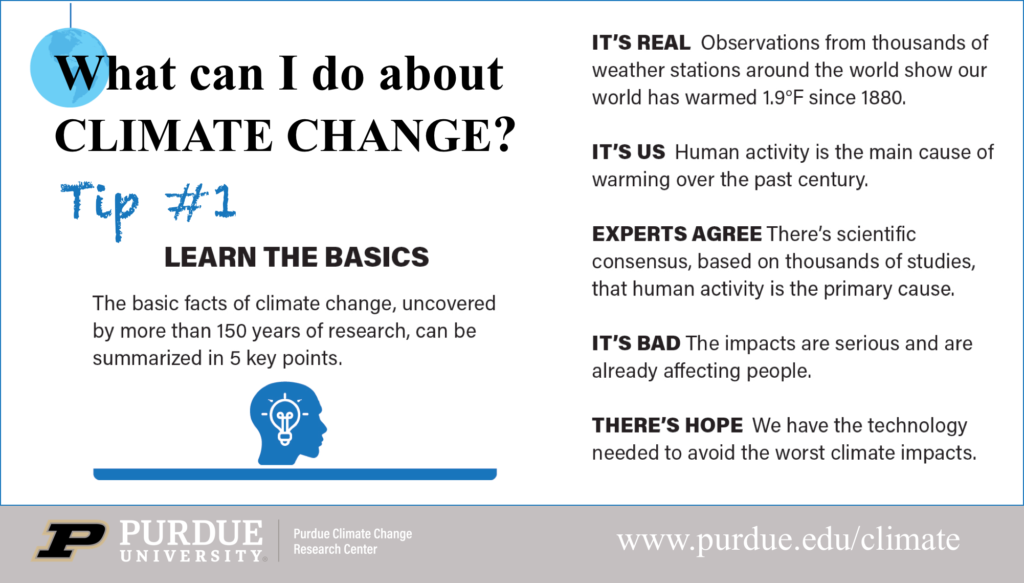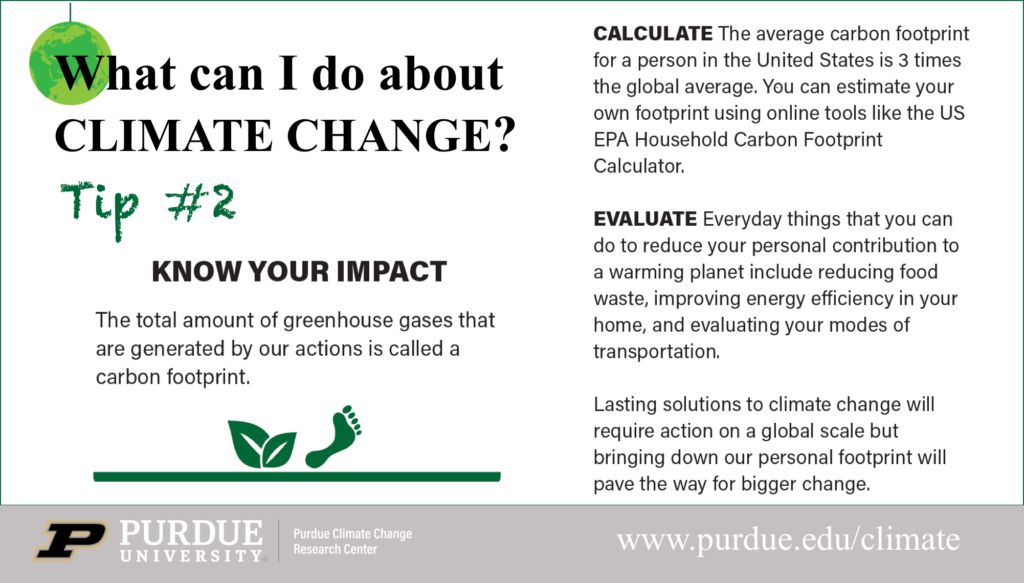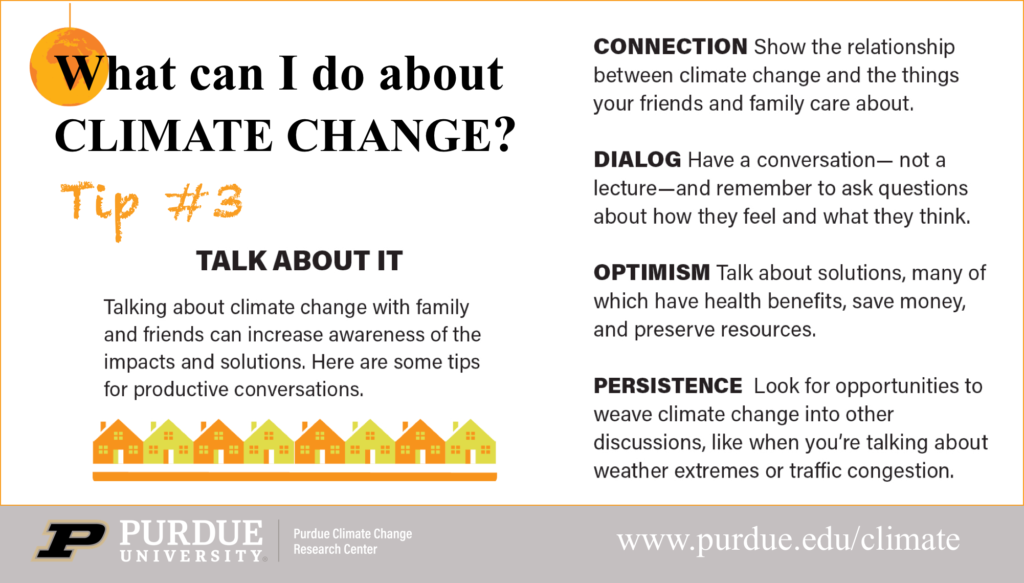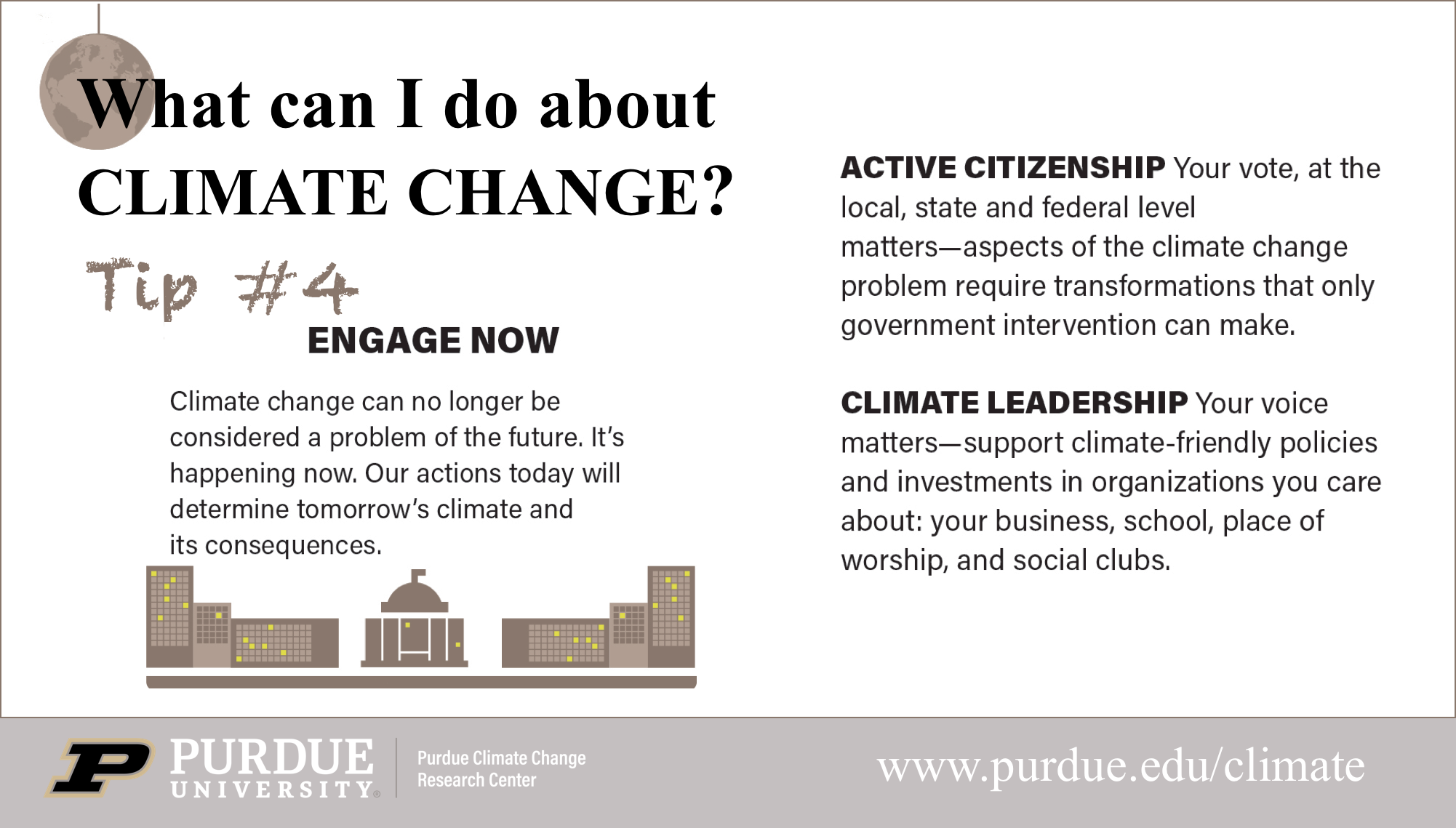For K-12 Teachers
Teaching Climate Change
What Educators Should Know and Can Do
Teaching about climate change is challenging, yet essential. In a recent article published in American Educator, Purdue professors Daniel Shepardson and Andrew Hirsch outline five critical topics that students need to know and that every adult should understand.
Below we've summarized these five topics, but we encourage you to check out their (free) article in full. In it, Shepardson and Hirsch review students' understanding of climate change and barriers to teaching it, they elaborate on key concepts, and they provide pedagogical suggestions for integrating these concepts into classroom learning.
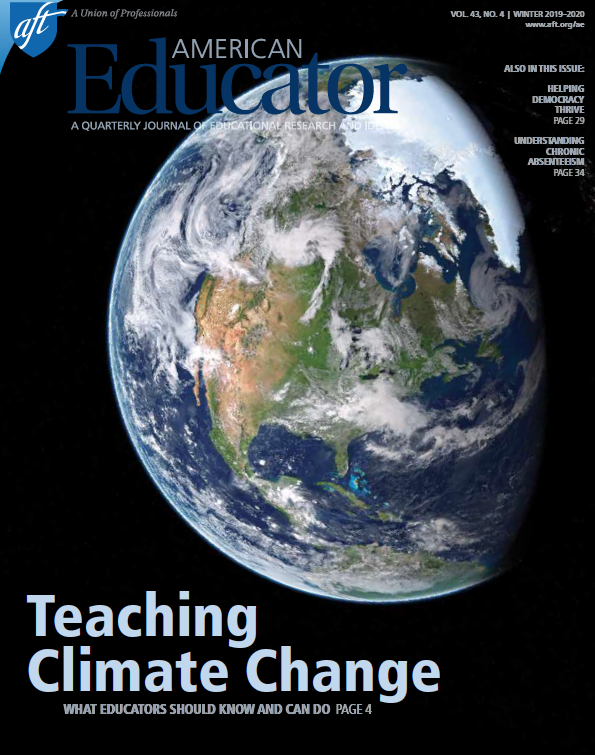
Summary: Five Critical Topics
Weather, Climate, and Climate Change
Students need to understand the relationship between weather and climate. Weather is a snapshot of day-to-day conditions at a location. Climate is the long-term average of weather conditions over 30 years or more. Knowing how climate data are generated and what those data actually represent are essential to understanding the concepts of climate variability and climate change.

BONUS: Listen to Shepardson & Hirsch talk about strategies for teaching climate change on the Class Dismissed podcast (Episode 140).
Indiana Climate Change Impacts Assessment
Scientists and decision makers from across the state have developed a series of easily understandable reports that shows how a changing climate affects state and local interests. Led by the Purdue Climate Change Research Center, the Indiana Climate Change Impacts Assessment (IN CCIA) provides the latest scientific research to help Hoosiers understand and prepare for the impacts of a changing climate.
NEW -- Indiana-specific climate lessons (teacher guides coming soon)
The Dynamics of Climate Toolkit
The Dynamics of Climate Toolkit was developed to support those interested in implementing professional development that prepares educators to understand both the science of climate and climate change and the pedagogy for effectively teaching it. The toolkit includes curriculum for an 8-hour workshop, with activities designed to engage participants in analyzing and interpreting climate data sets and visualizations in a collaborative setting. The workshop also addresses major misconceptions students and adults hold about climate, global warming, and climate change.
PCCRC is available to help you find potential speakers for a workshop, and to provide suggestions for workshop logistics.
Click on a component below to download it, or click the button to download the whole toolkit. The contents of this toolkit may be downloaded and copied for use at no cost but may not be sold.
Activities for Conceptualizing Climate and Climate Change
Companion materials for The Dynamics of Climate Toolkit
The following activities and accompanying teacher guides are designed to serve as an additional resource for grade 7-12 teachers and students. The activities incorporate real scientific data and require students to interpret, analyze, and represent data and scientific concepts. The activities facilitate student learning by emphasizing the application of scientific concepts to real-life scenarios. They were designed in line with a conceptual framework and based on research on student conceptions about climate and climate change. These activities can be distributed to teachers and copied for classroom use by teachers at no cost, but they may not be sold.
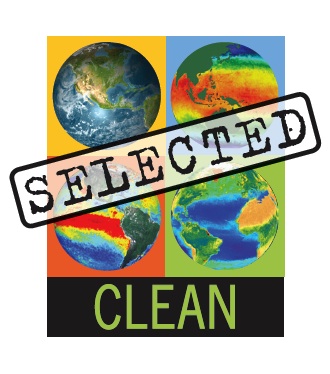
The Dynamics of Climate Toolkit was supported by the National Science Foundation through the Geoscience Education program under grant number GEO-0606922. Any opinions, findings, and conclusions or recommendations expressed in this material are those of the authors and do not necessarily reflect the views of the National Science Foundation.

4-H Weather and Climate Science Curriculum
Developed by 4-H educator and Purdue professor Dr. Natalie Carroll, this 3-part series and facilitator’s guide provides hands-on and expert-reviewed material for grades 3-12. Students will will first learn basic weather words and ideas, and the difference between weather and climate. Additional topics explore how the weather works, weather measurements, and natural hazards before addressing more complex topics such as energy balance, natural and human influences on the climate, and climate change.
Are you interested in learning more about the curriculum, straight from the author and a 4-H educator? Watch a webinar all about the curriculum, available here.
What Can I Do About Climate Change?
Lasting climate solutions will require action on a global scale, but there are many ways that individuals can help pave the way for bigger change. We’ve summarized four practical tips for how YOU can address climate change into a printable poster (right). You can also download each individual "tip card."
